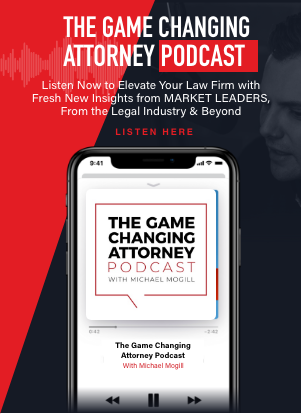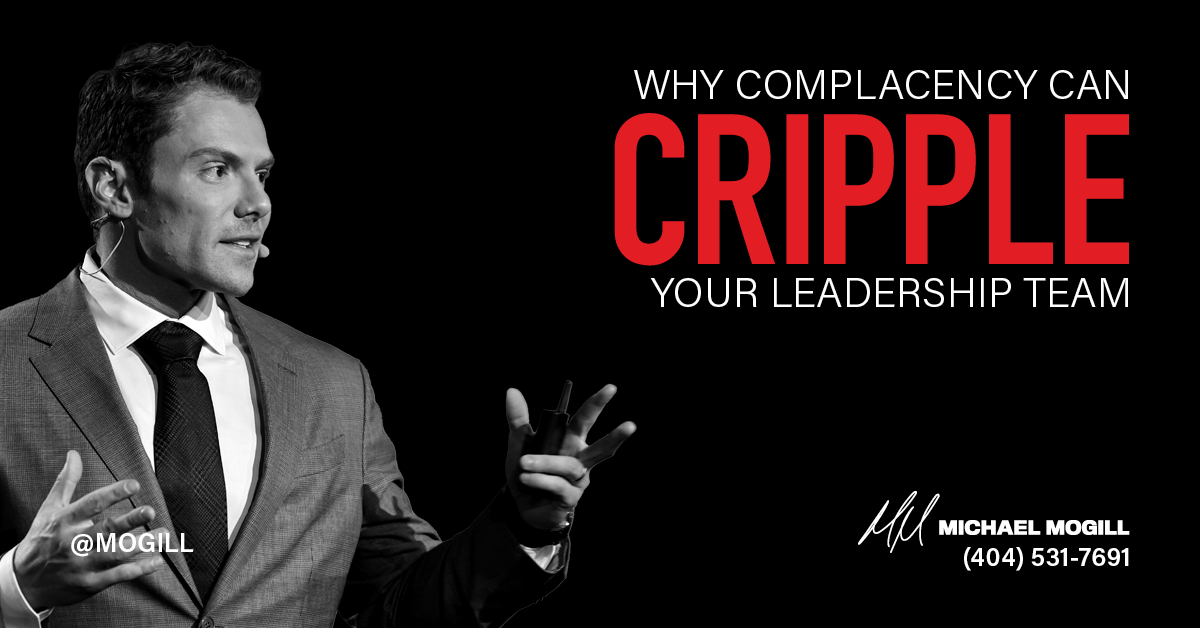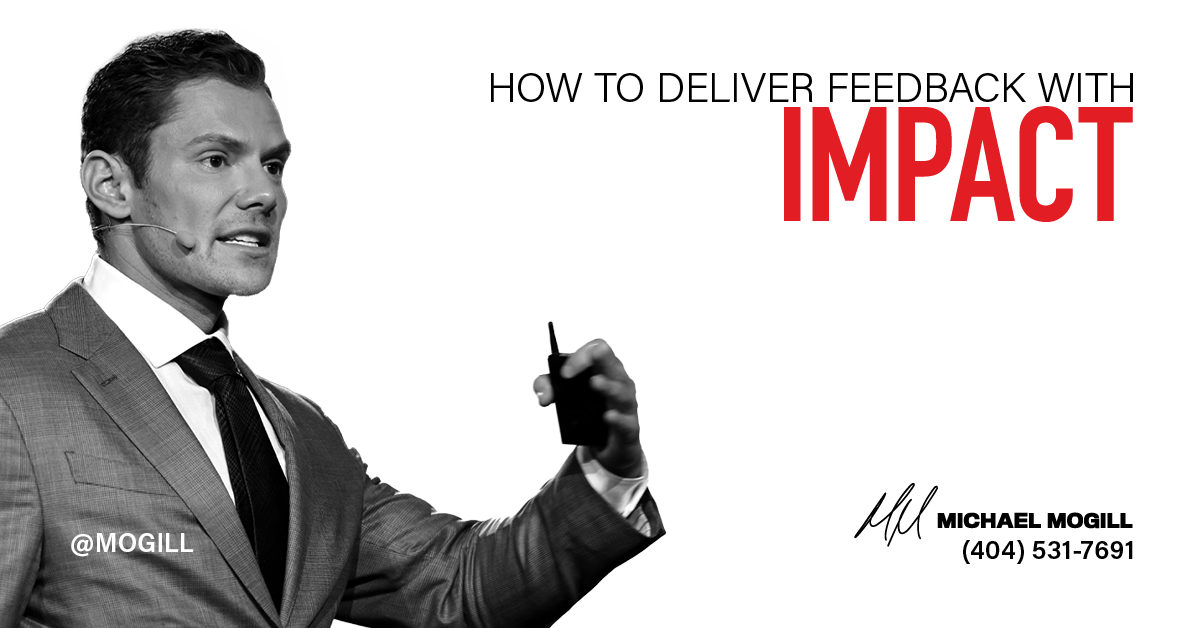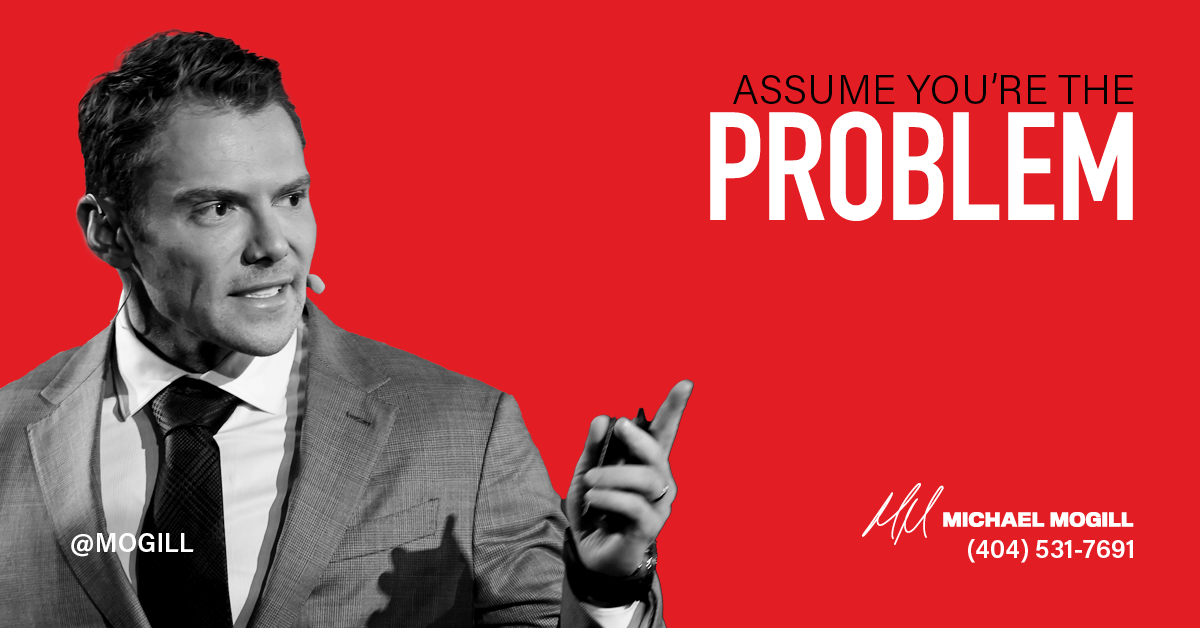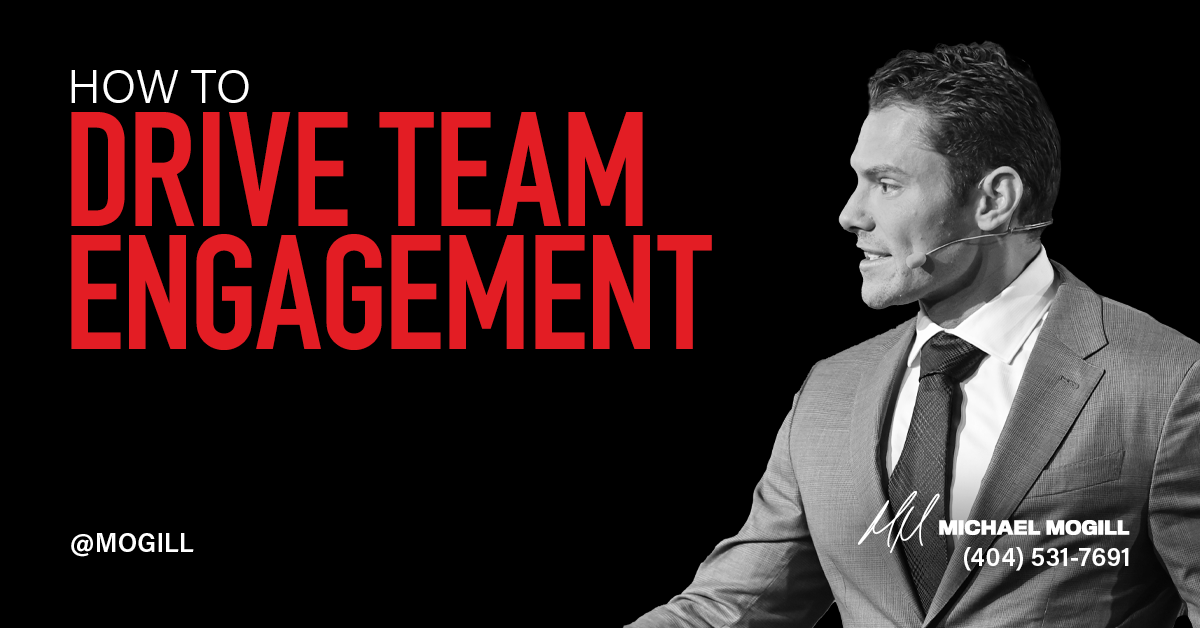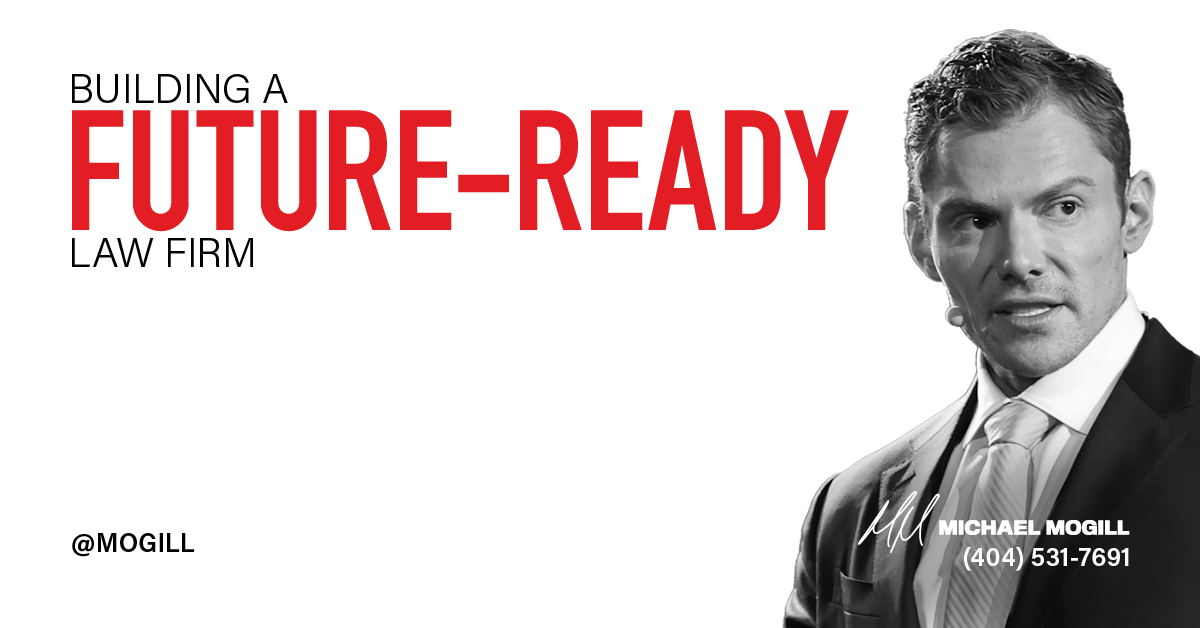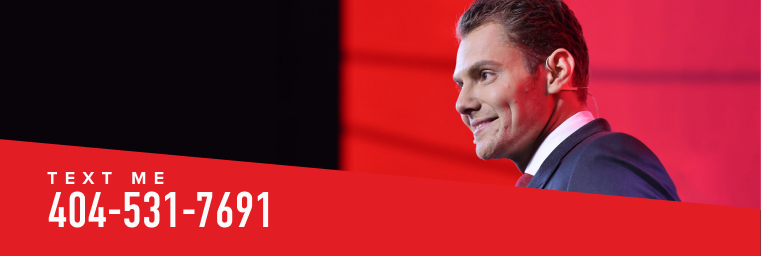The following is adapted from The Game Changing Attorney by Michael Mogill.
Today’s legal consumers are changing the way they make decisions. They’re far more engaged in choosing an attorney, and they want to be in control of their decision.
In marketing terms, their buyer’s journey looks far different than it did fifty years ago.
This means attorneys must interact with potential clients in new ways if they want to get their attention and earn their trust. Instead of trying to close the deal with a scripted sales pitch, attorneys should focus on developing and nurturing relationships.
The point is to form an emotional connection with potential clients through stories, interactions, and shared personal experiences. Emotional connections are deeper, more interesting, and more memorable than logical connections.
Not only that, emotions are more likely to drive action and change.
If you don’t take the time to engage your audience emotionally first, they’re most likely going to tune you out. When you lead with logic, you’re asking your audience to think before they even know who you are. It’s only after someone has made an emotional connection with you that they’ll even consider the logical appeal.
In this article, we’re going to walk through the five steps of the new journey consumers take when choosing an attorney. As we do, we’ll look at the levels of emotions and logic that are present at each step and how you should react with those levels in mind.
Step 1: Awareness
Emotion: HIGH • Logic: LOW
At first, your ideal clients won’t know who you are or why they should be interested in you. Your goal is to get their attention and change that.
In the world of legal video marketing, you will see more ads aimed at drumming up awareness than you will in any of the other following stages of the buyer’s journey.
These are the ones with the goofy attorneys in oversized cowboy hats riding down the highway in a convertible as they’re flanked by bikini models.
Sure, they attract attention, but the campaign stops there. All their content is based on raising awareness rather than nurturing the lead toward converting.
Such ads make the mistake of assuming the viewer is at the end of the buyer’s journey, and they’re ready to pick an attorney. In fact, the first time they see your ad, they’re at the beginning of the buyer’s journey. Once they become aware of who you are, you then have to demonstrate why you’re worth their business.
Step 2: Interest
Emotion: HIGH • Logic: LOW (BUT INCREASING)
At this point, the prospective client recognizes their need to hire an attorney, but they don’t know that they need to hire you specifically. Now is your chance to show them who you are. At this stage, interest is still heavily emotional, but logic is present.
Discerning clients are looking to narrow down candidates at this point. They will want to know why they should hire you, why they should trust you, what makes you different, and how they will know they made the right decision by choosing you.
Your impulse will be to show them all your awards and how much experience you have. Resist that impulse and focus on the thing that makes you different: your story.
Ultimately, this content answers the question, “Why should I hire you?”. There is a logical component to this answer, but it’s still grounded in emotion.
For instance, think how successful Sam Adams beer has been at compelling people to buy their beer by promoting themselves as a family-run business.
By promoting themselves as family run, they establish a family connection with their audience. This is an emotional connection.
Step 3: Evaluation
Emotion: LOW • Logic: HIGH
At this point, your prospective client is seriously considering hiring you, but they’re seriously considering a few other options as well. As they evaluate you as a firm, they’re looking to justify their emotional response by finding logical support.
The more complex the decision, the more logic plays a role. This stage of the buyer’s journey relies heavily on logic as you work to justify your initial appeal.
To provide that logical support, now is a great time to share a little about what you’ve accomplished through case studies, reviews, testimonials, and educational content like blogs, video, books, and speaking engagements. Anything that positions you as a thought leader and a credible expert will play in your favor.
To understand how the concept of evaluation works, pretend you’re shopping on Amazon. You’re down to two items. One has over a thousand reviews and a four-star average. The other has zero reviews—no data one way or the other. Which do you pick?
You’re going to pick the product with the thousand-plus reviews. Nobody in their right mind would ever buy anything off Amazon with zero reviews. According to research:
- 70% of consumers trust reviews from strangers.
- 92% read online reviews before making a decision.
- 85% read ten reviews before making a decision.
If you can’t provide prospective clients with social proof that reinforces the value you can provide them, then they’re going to go with someone else. Don’t just be what you say you are; prove that you are what you say you are. To build credibility, highlight things like client reviews and testimonials, and work to add value by creating educational content like blogs, e-books, and videos.
Step 4: Decision
Emotion: HIGH • Logic: VARIES
At this point, your prospective client is ready to hire you, but they’re still afraid of making the wrong decision—especially a decision as important as choosing legal counsel. As a result, they’ll want to start gathering evidence to see if you live up to your marketing.
This is where they’ll start reaching out to you through the phone, web form, social media, etc. So, if you market yourself as a world-class firm with incredible customer service, this is where you prove it. What is their experience when they call you? How responsive are you to outreach through email and website contact forms?
In other words: are you actually what you say you are?
Always keep in mind that choosing an attorney is a pivotal moment in your clients’ lives. They want to be logical, but emotion will factor heavily into their ultimate choice. At this point, your job is to reinforce the feeling that got their attention in the first place and to remove any kind of friction points that could make them reconsider.
Step 5: Loyalty
Emotion: HIGH • Logic: VARIES
In the modern buyer’s journey, loyalty is about maintaining a relationship with your clients for the long term. Loyalty works in two parts:
- The value your service brought to your clients’ lives. This is the logical appeal, though it often elicits a fresh emotional response.
- How the experiences that surrounded and supported your offering added or detracted from that value. At every step, you treated them right, saved them from all sorts of stress and headaches, and made the whole experience a pleasure. Because of that, they feel a desire to pay it forward.
One more time, repeat after me: the worst experience you could give your clients is the same experience they could get anywhere else.
When considering how you approach client loyalty, remember this quote: “People will forget what you did, but people will never forget how you made them feel.”
A good experience doesn’t end with a piece of marketing—or even after your work with a client is done. It has to carry out into everything you do.
You can promote client loyalty by sending your clients birthday cards, checking in on them, hosting client events, and finding ways to give back to your community.
For more advice on telling your story as a lawyer, you can find The Game Changing Attorney on Amazon.
Michael Mogill is Founder and CEO of Crisp Video Group (www.crispvideo.com), the nation’s fastest-growing legal video marketing company and the author of the “The Game Changing Attorney” (available on Amazon). He’s helped thousands of attorneys — from solo and small firms to large practices — differentiate themselves from competitors and earn millions in new revenue. Crisp has been named to the Inc. 500 list of America’s fastest-growing companies and has been awarded Best Places to Work. A sought-after speaker, Michael often presents at national conferences on innovative ways to create exponential business growth. His advice has been featured in publications such as Forbes, Inc., Avvo, ABA Journal, The Trial Lawyer, Huffington Post, and Wall Street Journal.

